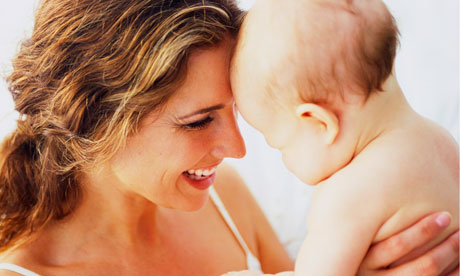
Are children in care being treated as crash-test dummies?
Fostering is touted as the new way forward. But this cheaper alternative to children’s homes is not a panacea
Parents Against Injustice
Fostering is touted as the new way forward. But this cheaper alternative to children’s homes is not a panacea


I’ve attended one funeral in my life. It was for a man who’d spent most of his life in care. Some of it with me. As an adult he became a residential social worker and worked in the same institution – questionably called an assessment centre -that once imprisoned both of us. His suicide was three years ago. You’ll forgive me for not mentioning his or the next person’s name.
Last week I received a message via Facebook from the partner of another suicide who spent his childhood in care. Some of it with me. His partner said he had killed himself because “he couldn’t live with the experiences of his time in care”. There are more.
Last week, Roger Morgan, the children’s rights director for England, welcomed a survey which found that 89% of children said the care they received was good or very good. Are children in care in a position to evaluate the situation? Wouldn’t it be more revelatory to visit them in adulthood and ask what impact their experiences had? And besides, what did Roger Morgan expect the young people to say to the agency or carers who gave them the survey? It’s Kafkaesque. Dickens was a foster child. “Oliver Twist” was a singular voice in the film when he famously asked “Please Sir can I have some more”. The majority of children sat tight and ate their gruel. Our social care systems developed from the workhouses of the 1800s where to be poor and in need was to be morally corrupt. Service was given with the left hand and punishment with the right. Our views of children in care today, our social services, are directly related to then. There’s something wrong with the child in care.The days of children’s homes that evolved from workhouses are coming to an end and wholesale fostering is the order of the day. Of young people in care, 70% are now fostered and 30% are in children’s homes. Most children’s homes (of the 1960s, 70s and 80s) have now been closed, but not for the betterment of the child; rather because adults took the social services to court and recounted the abuse they suffered. The insurance companies paid up and then raised the premiums until children’s homes became too expensive to run. Fostering is touted as the new way forward. Put simply, it’s cheaper. The order of priority is established.
The average number of times participants moved placement while in care increased from four to five in 2011. If a placement doesn’t work, the child moves to another family – with a heavier burden of confusion, guilt and shame. Is there a connection between these statistics and fast-track fostering and adoption? Are children in care being used as crash-test dummies in this latest drive to foster? Is a foster home the immediate solution to the needs of a child in care? The aristocracy don’t think so. They choose boarding schools for their children. If it were better to have their children in foster care they’d be fostering them to the mothers and fathers of Marlborough and Winchester in no time.
A child in care is legally parented by the government, represented by the social worker, who sources what is called the “corporate parent”. If the government is the legal parent, shouldn’t the child be an opportunity for excellence? And shouldn’t the overall health of government be assessed above all by how it parents its child?
I know many incredible and “successful” people who have been fostered, adopted or lived in children’s homes: barristers, millionaires, television executives, actors, journalists and pop stars. And then there’s the fictional characters: Harry Potter, Superman, Heathcliff, Jane Eyre, James BondLuke Skywalker. They use extraordinary skills to deal with extraordinary situations. Why haven’t we made the connection? From the outset it’s not our pity the child in care needs. It’s our respect.
Our approach to children in care is central to the problems the system suffers. Rather than judging them as a problem, they should be seen as an opportunity to make our services exemplary. To produce a functioning adult is the minimum I expect of a care system. Anything less is utterly scandalous. Children’s homes can be better for one child, fostering for another. Neither is a panacea.
When I left childhood after 17 atrocious years of foster care and children’s homes, they said I was a survivor. I remember thinking then as I think now. I don’t want to survive. I want to live.
How we treat children in care is a reflection of who we are as a society. Our social services are most visible through damage limitation, crowd control and a litany of public scandal spread over years. Least visible is the private compounding grief. The effect of a childhood in the care system is in adult life.Dickens was fostered. As an adult he wrote: “My whole nature was so penetrated with the grief and humiliation of such considerations that even now, famous and caressed and happy, I often forget in my dreams that I have a dear wife and children; even that I am a man; and wander desolately back to that time in my life.”
The shockwave from the mass foster movement and from the misapprehension of what a child in care is will not be now. It will be in 15 to 20 years’ time, when the government and you have moved on and adults who were in care “wander desolately back”.
© 2025 Created by Alison J Stevens.
Powered by
![]()
You need to be a member of Parents Against Injustice to add comments!
Join Parents Against Injustice